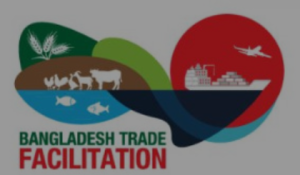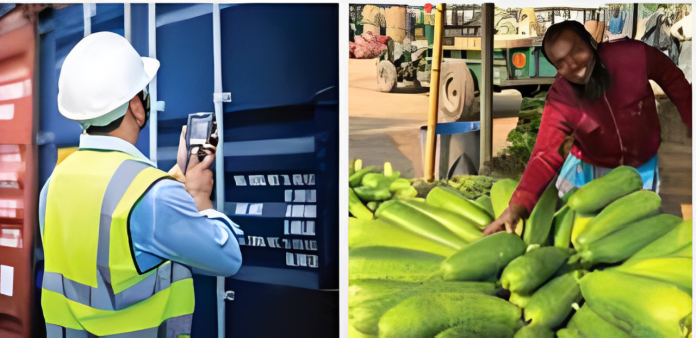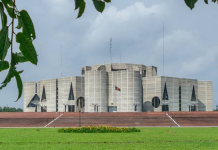Enhancing competitiveness in global markets requires efficient trade facilitation – streamlining procedures and reducing bureaucratic red tapes. An essential part of this process is the digitalization of trade processes, both regulatory and commercial.
Bangladesh ratified the World Trade Organization (WTO)’s Trade Facilitation Agreement (TFA) in 2016; but progress on its implementation has been slower than anticipated. Currently, the country has implemented 78.6% of the TFA measures. Some of the unimplemented measures still rely on technical and donor support.
However, TFA does not mandate the adoption of digital trade facilitation measures, which are essential for increased trade efficiency, competitiveness and transparency. According to the United Nations Global Survey on Digital and Sustainable Trade Facilitation 2023, Bangladesh’s implementation rate of paperless trade facilitation – the digitalization of national trade processes – stands at 59%, compared to 77% in Southeast Asia.
Understanding digital trade facilitation
 Digital trade facilitation refers to digitalization of the regulatory and commercial procedures related to exports, imports and transit trade. Digitalization is distinct from digitization, which refers to transforming paper documents to electronic documents. Digitalization encompasses the idea of simplifying and streamlining cumbersome procedures and adjusting the related legal frameworks before digitization takes place. Digitization is just one piece of a bigger puzzle. So, one must be careful to avoid jumping into digitization of trade documents.
Digital trade facilitation refers to digitalization of the regulatory and commercial procedures related to exports, imports and transit trade. Digitalization is distinct from digitization, which refers to transforming paper documents to electronic documents. Digitalization encompasses the idea of simplifying and streamlining cumbersome procedures and adjusting the related legal frameworks before digitization takes place. Digitization is just one piece of a bigger puzzle. So, one must be careful to avoid jumping into digitization of trade documents.
Challenges in Bangladesh
 In Bangladesh, a few digitalization initiatives have been undertaken such as the National Single Window (NSW) and national trade portal, supported by international organizations. Unfortunately, the NSW project has experienced significant delays for various reasons.
In Bangladesh, a few digitalization initiatives have been undertaken such as the National Single Window (NSW) and national trade portal, supported by international organizations. Unfortunately, the NSW project has experienced significant delays for various reasons.
In the UN survey’s cross-border paperless trade category, which consists of digital measures for exchange of electronic trade information, Bangladesh’s rate of implementation is only about 28% and the figure for South-east Asia is 55%.
Bangladesh ratified the Framework Agreement on Facilitation of Cross-border Paperless Trade in Asia and the Pacific (CPTA), facilitated by the UN Economic and Social Commission for Asia and the Pacific (ESCAP). However, no visible progress has been made to exchange electronic trade information.
A path forward
To accelerate the pace of digital trade facilitation and position Bangladesh as a competitive player in international trade, a series of coordinated policies and actions are required. These should be implemented across short, medium, and long-term timelines:
-
- Develop a National Trade Facilitation Roadmap with measurable targets focused on digitalizing trade procedures. All trade-related institutions should be integrated under the National Single Window framework. (Short term)
- Establish a dedicated entity to manage the National Single Window, operating as a public-private partnership. This would ensure a balanced approach between governmental oversight and private sector efficiency. (Medium term)
- Initiate a sub-regional exchange mechanism with other countries such as those that have ratified the CPTA or the Southeast Asian economies, promoting intra-regional cooperation in digital trade facilitation. (Medium term)
- Establish agreements with key trading partners, such as the United States and the European Union, to exchange critical trade documents (e.g., Certificate of Origin, laboratory certificates, and Phytosanitary Certificates) electronically. (Medium to long term)
Strengthening oversight and coordination
In addition to these specific actions, Bangladesh must revitalize the National Trade Facilitation Committee to ensure proper coordination among various ministries and agencies. This committee should regularly review the progress of initiatives against established policies and, if necessary, implement faster clearance procedures for critical trade facilitation projects.

Salehin Khan
Salehin Khan is an international trade professional with more than fifteen years of experience in trade facilitation and private sector development in various international organizations. He is currently managing the digitalization initiative at the Secretariat of the Convention on International Trade in Endangered Species of Wild Fauna and Flora (CITES), under the United Nations Environment Programme (UNEP). He also worked at the UN Economic Commission for Europe (UNECE); the UN Economic and Social Commission for Asia and the Pacific (UNESCAP);
International Finance Corporation (IFC), and International Labour Organization (ILO). He holds an MA in Development Studies from the International Institute of Social Studies, the Hague, the Netherlands. E-mail: khan.salehin@un.org




